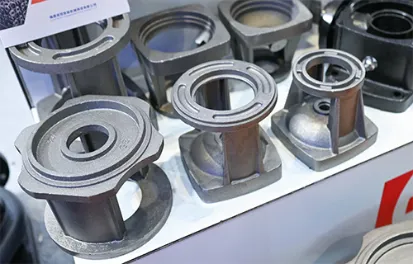Mobile:+86-311-808-126-83
Email:info@ydcastings.com
Aluminium Alloys Suitable for High-Performance Pressure Die Casting Applications and Benefits
Aluminium Alloys for Pressure Die Casting
Aluminium alloys have gained immense popularity in various industrial applications, particularly in the field of pressure die casting. This process involves forcing molten aluminium into a mold under high pressure, resulting in components with exceptional detail and surface finish. By selecting the appropriate aluminium alloy, manufacturers can significantly enhance the mechanical properties, corrosion resistance, and overall functionality of the final product.
One of the primary reasons aluminium alloys are favored for pressure die casting is their excellent fluidity. This characteristic allows the molten metal to fill complex mold geometries, ensuring that intricate designs can be achieved without defects. Furthermore, aluminium's relatively low density offers a significant advantage over other metals, making it a preferred choice in industries where weight reduction is critical, such as automotive and aerospace.
When it comes to alloys, the most commonly used grades for pressure die casting are the Al-Si and Al-Zn systems. The Al-Si alloys, particularly the A356 and A380, are widely utilized due to their exceptional casting properties. A356 alloy is known for its good mechanical strength and corrosion resistance, making it ideal for aerospace applications. A380, on the other hand, is favored for its excellent flow characteristics and ability to create complex shapes, often used in automotive parts such as engine casings and transmission housings.
In addition to their mechanical properties, aluminium alloys for pressure die casting also exhibit impressive thermal conductivity, which is crucial in applications where heat dissipation is essential
. High thermal conductivity aids in preventing overheating of components and enhances the overall reliability of the assembly.aluminium alloy for pressure die casting

Moreover, the surface finish of die cast aluminium components is often superior compared to other casting methods. This is particularly beneficial in applications where aesthetics matter, such as consumer electronics and decorative parts. The smooth surface finish obtained through pressure die casting also reduces the need for extensive machining or additional finishing processes, saving time and costs in production.
Corrosion resistance is another vital attribute of aluminium alloys. They naturally form a thin oxide layer that protects them from further oxidation and deterioration, making them suitable for use in harsh environments. This property is particularly valuable in industries like marine and automotive, where products are exposed to moisture, chemicals, and other corrosive elements.
Despite the many advantages of aluminium die castings, there are some considerations to bear in mind. The selection of the appropriate alloy and die casting parameters is crucial to achieve the desired mechanical properties and surface quality. Additionally, the recycling of aluminium has become increasingly important, as it contributes to sustainability and reduces environmental impact. Aluminium can be recycled without losing its quality, making it an eco-friendly choice for manufacturers.
Another factor that influences the choice of aluminium alloys is the alloying elements used in the formulation. Elements such as copper, magnesium, and zinc can enhance specific properties like strength, hardness, and weldability. However, care must be taken in their incorporation, as they can also affect castability and corrosion resistance.
In conclusion, aluminium alloys play a vital role in pressure die casting, offering a unique combination of strength, lightweight, aesthetic appeal, and corrosion resistance. The continuous advancements in alloy technology and casting techniques have broadened the possibilities for design and functionality, making aluminium a go-to material for many industries. As demands for lightweight and high-performance components grow, the significance of aluminium alloys in pressure die casting will undoubtedly continue to rise.
-
Why Should You Invest in Superior Pump Castings for Your Equipment?NewsJun.09,2025
-
Unlock Performance Potential with Stainless Impellers and Aluminum End CapsNewsJun.09,2025
-
Revolutionize Your Machinery with Superior Cast Iron and Aluminum ComponentsNewsJun.09,2025
-
Revolutionize Fluid Dynamics with Premium Pump ComponentsNewsJun.09,2025
-
Optimizing Industrial Systems with Essential Valve ComponentsNewsJun.09,2025
-
Elevate Grid Efficiency with High-Precision Power CastingsNewsJun.09,2025











